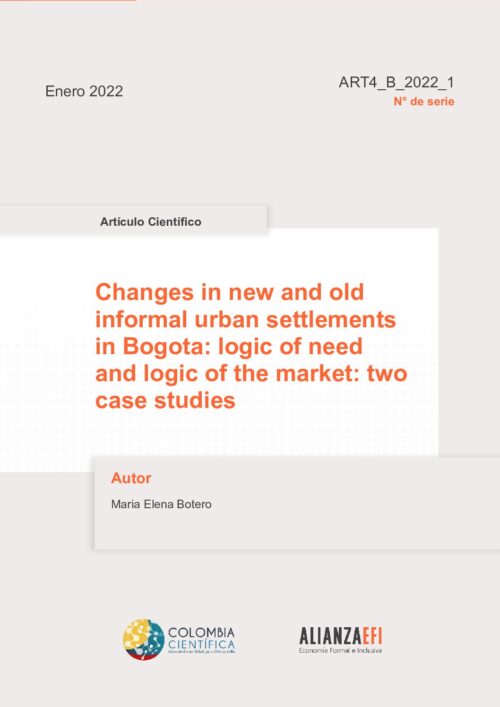Urban policies conceive informal urbanization as a phenomenon to be eliminated or regularized. However, the “informal city” does not exist separately from formality, so it is necessary to understand how its actors, institutions and social arrangements function. This article, resulting from research , shows the changes produced in the motivations for the formation and destiny of old and new informal neighborhoods in Bogota in the light of a comparison between the Potosi neighborhood and the El Eden neighborhood.
The objective is to show that the way in which the State assumes urban informality, far from meeting the needs of access to land and housing for the poorest people in the cities, generates a vicious circle where, on one hand, illegal economies win, from the illegal appropriation of land and its subsequent commercialization by “Tierreros” and “Urbanizadores Piratas” ; and on the other hand, the logics of need and the logics of the market overlap in access to land and housing in informal conditions.
Autores:
- Maria Elena Botero
Categorías:
- Proyecto 4
- Publicación
